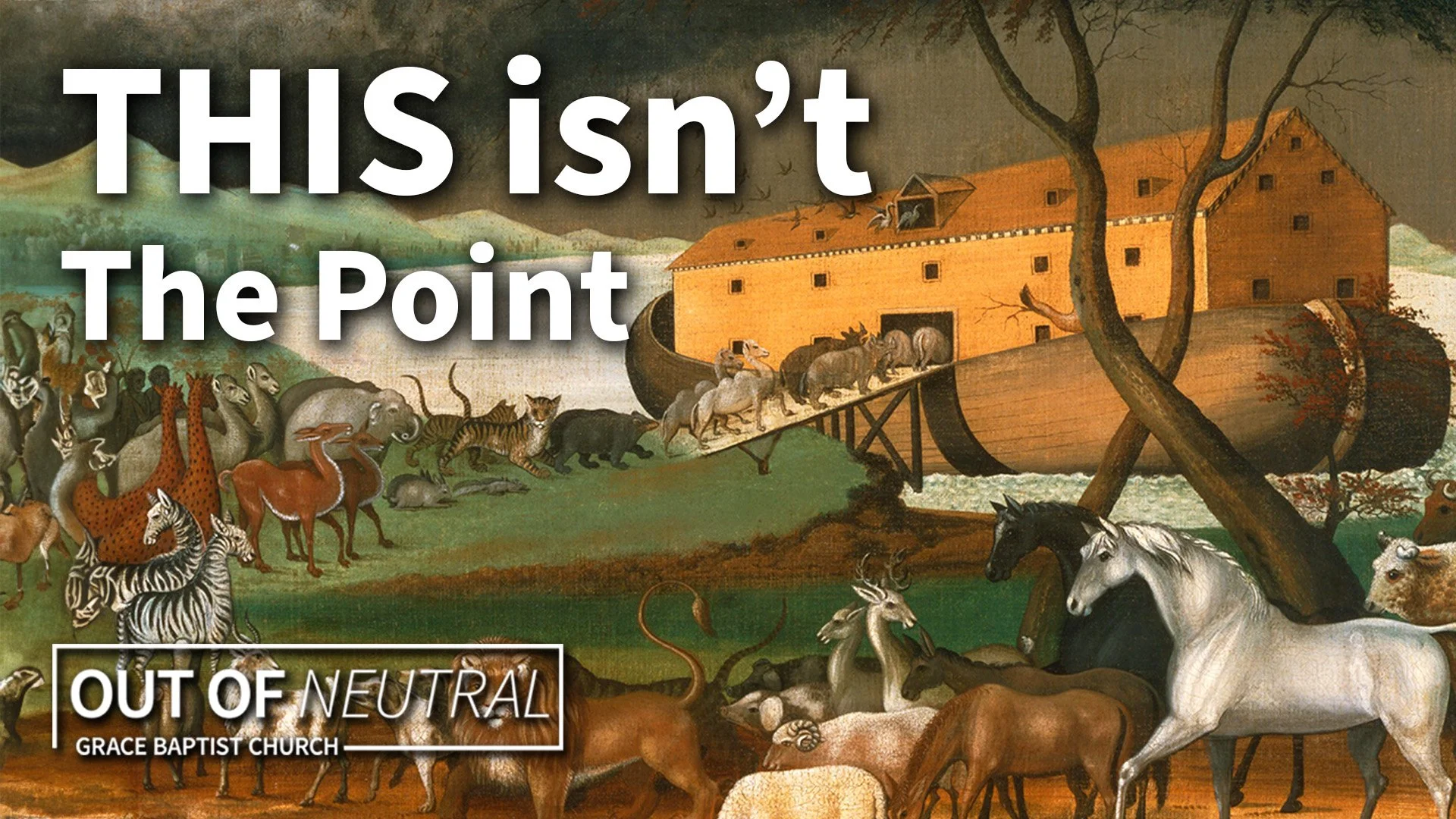Everybody knows the story of Noah’s Ark, right? There’s something irresistible about those pairs of animals and the incredible scale of what Noah built. Children love drawing the zebras and monkeys, and adults endlessly speculate about how everything fit and what it might have been like. Reports of the potential discovery of the ark’s remains on Mount Ararat only add to the fascination. But all of those things distract us from the message that Noah’s Ark is intended to convey. Do you know what it teaches? Or have you missed the forest for the trees? There are several important lessons that we should hear from Noah’s Ark no matter what our age.
1. The wrong that we do is more serious than we admit
We seem to have an unusual capacity to minimize our sin. We don’t see it. We won’t see it. We can’t see it. That’s the only conclusion I can draw from the stark assessments God makes about us in Scripture. Noah’s story begins with descriptions of God grieving at what His creation had become. He sees the wickedness of human actions and the evil of human attitudes (Genesis 6:5), and He declares, “I will blot out man whom I have created from the face of the land, man and animals and creeping things and birds of the heavens, for I am sorry that I have made them” (Genesis 6:7).
We experience some of God’s pain when someone sins against us, but even law-abiding people can disrespect, disregard, and dismiss the God who made them. The story of Noah teaches us that it not only hurts God but is an evil that can’t go unaddressed. When God vows to “blot out” His creation, it’s a word that can be used when you’re wiping clean a dirty dish (2 Kings 21:13). Just as God cleansed the earth with water in Noah’s day, God promises to one day purify the world with the fire of judgment (2 Peter 3:5-7).
2. God will rescue those who walk with God
With such hopeless assessments of human sinfulness, we’re surprised to learn that there’s a person who has “found favor in the eyes of the Lord” (Genesis 6:8). Noah is called “righteous” and “blameless” (Genesis 6:9), and we’re left wondering how. What does it take to find favour with God in a world where sin feels like second nature? The rest of the passage is intended to teach us.
The first thing that we learn about Noah’s righteousness is that he “walked with God” (Genesis 6:9). We tend to view good and bad in terms of civil laws or whether the person is hurting anyone, but God views us in light of who He is and what He’s commanded. With Noah, before we learn anything about his actions, we’re told of his relationship with the Lord. From that relationship flows his obedience, not just his goodness. He didn’t just do good things. Again and again, it says, “he did all that God commanded him” (Genesis 6:22; 7:5, 9, 16). As we see later in the story, that doesn’t mean that Noah was perfect, but he had a relationship of trust in God that caused him to walk in light of God’s commands. As Hebrews 11:17 says, “By faith Noah, being warned by God concerning events as yet unseen, in reverent fear constructed an ark for the saving of his household. By this he … became an heir of the righteousness that comes by faith.”
3. We need a Saviour, but it’s not Noah
We might have gotten to the end of the story and concluded that Noah must be the Saviour. Surely, with God starting over with him and his family, there shouldn’t be any more problems. Unfortunately, no sooner do we see him rescued than he plants a vineyard and gets drunk from the wine he makes with the harvest (Genesis 9:20-21). The takeaway isn’t just that nobody’s perfect. What we learn is that even a global flood couldn’t succeed in cleansing the earth. We need a better Saviour than Noah. We need someone who will rescue us from a greater judgment that will surely come. We don’t just need someone who walks with God; we need God Himself to come rescue us. Noah points us to Jesus.
Is that the message you heard in Sunday School? Is that what you learned while the teacher put those felt lions on the board? Is that the message you’ve taught to your children? We need to hear and respond to the message of Noah’s Ark more than ever.
In awe of Him,
Paul














